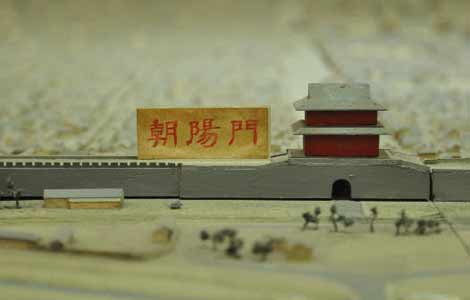Anti-monopoly efforts
Updated: 2013-08-26 09:40
(China Daily)
|
|||||||||||
China is ramping up anti-monopoly law enforcement, a move that serves the country's pursuit of building a rule- and competition-based market economy.
Early this month, anti-trust regulators fined six dairy firms, mostly foreign, for alleged illegal pursuit of higher market shares through "vertical monopoly".
Vertical monopoly refers to behavior of a company that controls its production and distribution channels to forbid price cuts and prevent competition in the market.
Before that, global healthcare giant Johnson & Johnson was fined for minimum-price setting for surgical instrument sales.
While speculation has arisen that the country is making use of anti-trust moves to prevent foreign companies from expanding their foothold in the world's largest consumer market, regulators have announced their intention to target the petroleum, telecommunications, banking and auto sectors, which may concern mostly domestic enterprises.
And in previous investigations of industries such as publishing, insurance, liquor and gold jewelry, private, State-owned as well as foreign enterprises have been fined for violations of the anti-trust law. There is no evidence that foreign companies alone are been targeted in the investigations.
China's anti-monopoly investigations aim to prevent enterprises with a leading market position from abusing their position and having an adverse effect on the building of a competition-based market economy and harming the interests of consumers.
As China's market economy matures, such investigations could become routine, and market players, whether domestic or foreign, should make thorough assessments of whether their operations violate the country's anti-monopoly law before they start to implement competition strategies.
While such assessments might not have been necessary in the past, today they cannot be ignored.
Given China's short history of enforcing its anti-trust law - the anti-monopoly law was promulgated only four years ago and it was not until 2011 that the government established the anti-trust bureau - some foreign enterprises' concerns about, and distrust of, the country's anti-trust investigations are understandable.
Regulators, as they push their anti-trust drive, should strengthen information disclosure to alleviate such concerns. They need to clarify to the market what is behind their anti-monopoly moves and how they decide whether an enterprise is monopolizing the market or not.
Related Stories
CEO aims to break foreign monopoly on medical tech 2013-06-09 10:20
Intellectual property system ‘protects monopolies’ 2013-05-13 14:55
Monopoly bred corruption 2013-04-12 07:12
China erodes Western monopoly 2013-04-26 11:17
Today's Top News
Sino-Japanese meeting at G20 ruled out
Japan coast guard seeks more money
Party's plenum to focus on reform
Industrial sector's profit picture brightens
Rich Chinese eye overseas properties
New time limits for visa processing
China joins global effort to combat tax evasion
Chinese negotiator in DPRK
Hot Topics
Lunar probe , China growth forecasts, Emission rules get tougher, China seen through 'colored lens', International board,
Editor's Picks

|

|

|

|

|

|





